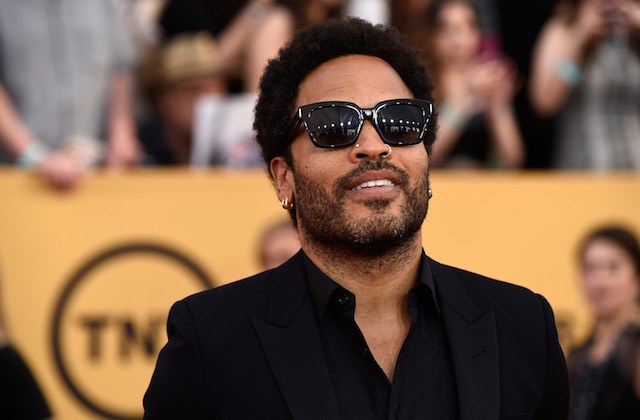Lenny Kravitz‘s heavy guitar riffs, smooth voice and sex appeal made him a global superstar. But as he explains on a new episode of the "What’s Good with Stretch & Bobbito" podcast, that he thrived despite the boxes the music industry and media tried to draw for him.
"The questions they would ask me when I was doing promo on [my] first album [were like], ‘Why aren’t you doing hip hop? Why aren’t you this and why aren’t you an angry Black person?’" Kravitz recounts about early interviews to hosts Bobbito Garcia and Stretch Armstrong today (August 22). "They just didn’t understand what I was doing, but you know, here we are."
Kravitz also talked about his upbringing among Black women, including his actress mother, Roxie Roker ("Good Times"):
rnt
Black women have been the rock for so long in our lives. They’re queens, man, and they’re powerful. I was raised by a group of amazing Black women. That was also the beauty of back in the day, in Brooklyn. If my grandmother was at work or wasn’t around, you had Ms. So-and-so. And Ms. So-and-so would tear your ass up and take you back to your grandmother and explain what happened. People had jurisdiction. The neighborhood raised everybody. It wasn’t just your mom or your grandmother; the whole block was watching out.
It was his mother who helped him understand his biracial identity, owing to her marriage to Sy Kravitz, a White Jewish TV producer:
rnt
My parents took me to school, and it’s the first day of school, so everybody’s parents are walking their kids to school and everybody else’s parents matched except mine. I remember this kid walked up to us in the hallway and he goes, "Your dad’s White!" And he pointed his finger. I didn’t understand it—he made a big statement, he pointed, it was a thing, it was loud. That’s the first time that I understood something was going on.
t
I talked to my mother about it and she explained, you know, you’re this, you’re that, you should be proud of both sides of your heritage. One thing that she told me that was really interesting—and this is [when I was ] 6 years old, I didn’t understand it until many years later—she said, "Even though you’re half-this half-that, society is only going to see you as Black." That was a very interesting thing to tell a 6-year-old.
Listen to the full interview via NPR:
